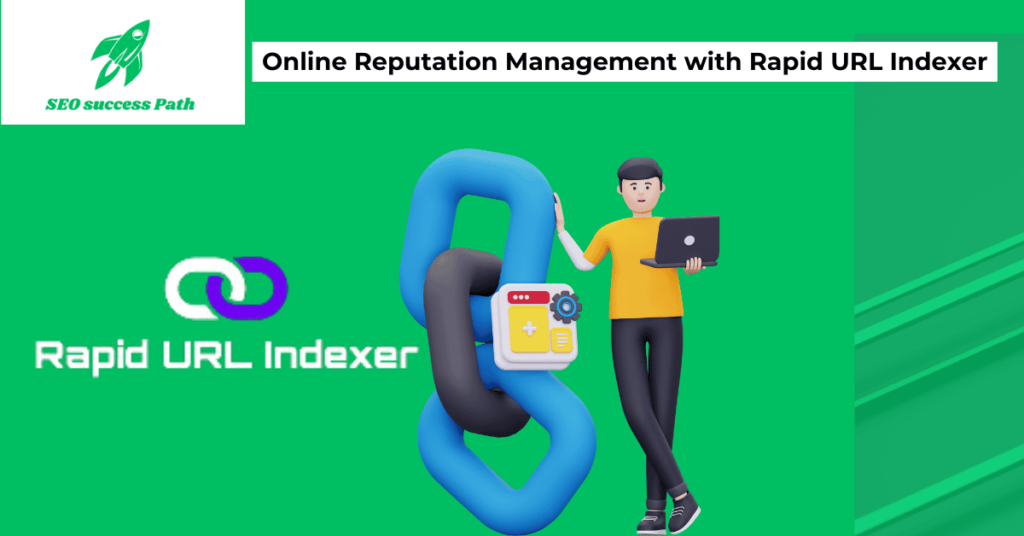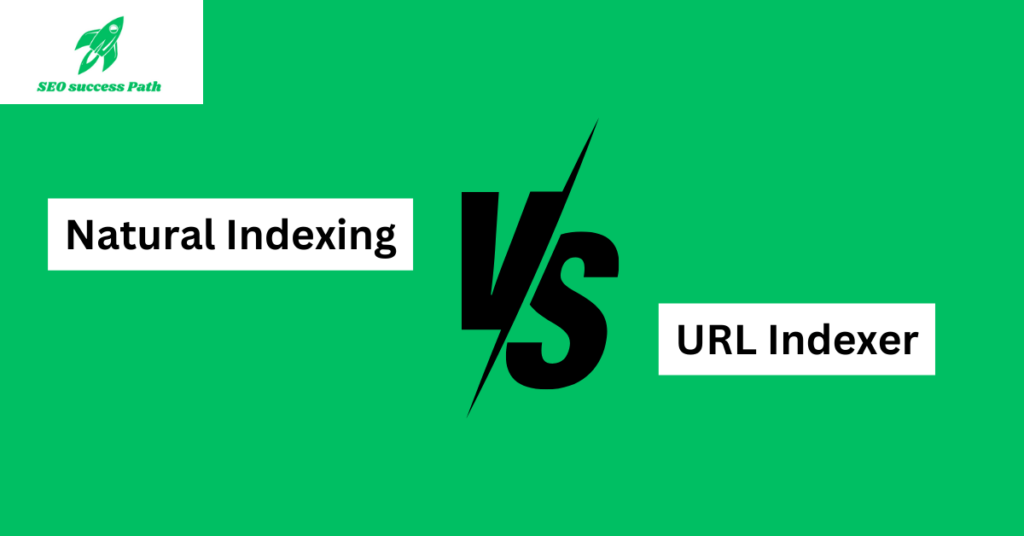
Are you struggling to maintain a positive online reputation? In today’s digital age, your online presence can make or break your business or personal brand. Whether you’re trying to push down negative reviews, promote positive content, or simply ensure your best work is visible,
Online Reputation Management (ORM) has become a priority, especially for brands that rely heavily on customer trust and positive public perception. Integrating ORM with a Rapid URL Indexer can be a game-changer, allowing businesses to manage their online reputation more efficiently.
Online Reputation Management with Rapid URL Indexer offers a powerful solution. By using Rapid URL Indexer, you can speed up the process of getting your positive content indexed on search engines. The quicker your content gets indexed, the sooner it can influence your brand’s online presence. In this post, we’ll dive into pro tips on how to effectively use this tool to enhance your reputation and improve your online visibility. If you’re interested in learning more about using Rapid URL Indexer for SEO, check out our detailed guide: Rapid URL Indexer: Boost Local SEO Quickly with Simple Steps.
What is Online Reputation Management(ORM)? A Quick Guide.
Online Reputation Management (ORM) refers to the practice of monitoring, enhancing, and improving the online perception of an individual, brand, or business. It involves managing how a person or organization is viewed across search engines, social media platforms, and review sites.
Key Points:
- Monitoring & Response: Regularly track reviews, mentions, and social media activity to stay informed and respond to feedback.
- Content Creation: Build positive content such as blog posts, reviews, and testimonials to push negative content down the search results.
- Reputation Repair: Address any negative reviews or misleading information by providing solutions or reaching out to the sources for resolution.
Why is ORM Essential for Businesses?
ORM is important for businesses because it affects how much customers trust you. When people search for your business, the results should show that you are trustworthy. A bad reputation can hurt sales, partnerships, and even the long-term success of your business. For more insights on why ORM matters, take a look at this Forbes article on reputation management.
What is a Rapid URL Indexer?
Before diving into how a Rapid URL Indexer helps with ORM, let’s understand what it is. A Rapid URL Indexer is a tool designed to accelerate the process of getting your URLs indexed by search engines, particularly Google. Normally, it can take several days for new content to be indexed and appear in search engine results pages (SERPs). A Rapid URL Indexer speeds up this process, ensuring that positive content you want associated with your name or brand appears quickly.
In ORM, this is crucial because the sooner your positive content or corrective information is indexed, the faster it can push down negative mentions or outdated information that may be hurting your reputation.
Natural Indexing vs. URL Indexer: Key Differences

- Process: Natural indexing occurs organically over time as search engines crawl and discover your content.
A URL indexer, on the other hand, speeds up the process by submitting your URLs directly to search engines for faster indexing. - Speed: Natural indexing can take days or even weeks for content to appear in search results,
while a URL indexer helps your pages get indexed quickly, often within hours. - Control: With natural indexing, you have little control over when or how quickly your pages get indexed,
while using a URL indexer gives you more immediate control over the indexing process. - Dependence: Natural indexing relies solely on search engine bots discovering and crawling your site,
while a URL indexer ensures that search engines know about your content more directly.
How Does the Rapid URL Indexer Work for ORM?
To effectively manage your online reputation, you need to ensure that new, positive content about you or your brand appears in search results as soon as possible. The Rapid URL Indexer works by helping Google and other search engines discover and index your URLs faster.
Here’s how it helps in ORM:
- Faster Visibility: When you publish a new blog post, press release, or positive review, the Rapid URL Indexer ensures that it gets indexed quickly, so it can appear in search results within hours or days.
- Push Down Negative Content: By ensuring your positive content is indexed faster, it can help push negative reviews, outdated articles, or harmful content further down the SERPs, making them less visible to potential customers.
- Continuous Monitoring: With rapid indexing, you can continuously add new content that promotes a positive image, which is essential for managing your reputation long-term.
Pro Tips for Using Rapid URL Indexer to Manage Your Online Reputation
Now that we understand the basics of ORM and how a Rapid URL Indexer fits into the strategy, let’s explore some pro tips for using this tool effectively.
1. Create Fresh, High-Quality Content Regularly
One of the best ways to manage your online reputation is by consistently publishing high-quality, positive content. This could include blog posts, press releases, or case studies highlighting your successes or positive aspects of your business.
Optimizing Content for Faster Indexing:
For rapid indexing, focus on:
- Keyword optimization – Use primary keywords effectively in titles, headers, and throughout the content.
- Metadata – Write compelling meta titles and descriptions that make your content easy to find and click.
- Internal and External Links – These can encourage search engines to crawl your page more frequently.
For example, if you are a small business owner, write detailed blog posts about your services, customer testimonials, and case studies of your projects. Use the Rapid URL Indexer to ensure this content is indexed quickly. The faster your positive content gets indexed, the more likely it will appear above any negative content in the search results.
2. Use the Rapid URL Indexer for Urgent Reputation Repair
If you’re facing an online reputation crisis, like a bad review, false social media post, or negative news, the Rapid URL Indexer can help. In such situations, it’s important to create content that fixes the issue, like a public statement or a customer support page.
For example, if a bad review about your business spreads quickly, you can write a thoughtful response or a blog post addressing the concern. By using the Rapid URL Indexer, your new content will get indexed faster, helping it show up in search results sooner. This allows you to start repairing your reputation right away, ensuring that your response is visible to potential customers quickly.
3. Optimize Content for SEO to Boost Visibility
While the Rapid URL Indexer helps get your content indexed faster, SEO optimization ensures it ranks well once indexed. Use keyword-rich titles, meta descriptions, and well-researched keywords to enhance the visibility of your content. When people search for your name or brand, you want your positive content to be front and center.
For example, if a competitor’s negative review ranks highly, create SEO-optimized content around terms like “customer satisfaction,” “testimonials,” or “successful projects” and ensure that the Rapid URL Indexer accelerates its indexing. This increases the likelihood of your content appearing above the negative results. Learn more about effective SEO strategies at SEO Success Path.
4. Leverage Social Media for Broader Reach
Social media platforms are a powerful tool for ORM. Share positive content like blog posts, customer reviews, and product announcements on your social media accounts. By using the Rapid URL Indexer, you can ensure that these social media posts are indexed quickly, giving them an extra SEO boost.
For instance, if you run a company that offers online courses and have just launched a new course, share this news across your social channels and use the Rapid URL Indexer to ensure the content gets indexed quickly. As the post gets indexed, it helps to build your online reputation as an authority in the field.
5. Monitor Your Reputation with Analytics Tools
After using the Rapid URL Indexer, track the progress of your reputation management strategy with tools like Google Search Console or SEMrush. Monitoring keyword rankings, visibility, and indexed content will allow you to evaluate the effectiveness of your ORM efforts. If some content is not performing as expected, it might be time to revisit your content strategy and SEO approach.
Practical Example of ORM with Rapid URL Indexer
Let’s consider a real-world scenario. Imagine a local restaurant that receives a negative review on a popular food blog. This review ranks high in Google search results, potentially affecting the restaurant’s reputation.
To counter this:
- The restaurant creates a positive blog post that highlights recent positive customer feedback and a special promotion.
- They use the Rapid URL Indexer to get this blog post indexed within hours.
- The blog post ranks quickly, pushing the negative review down the search results.
- Over time, as the restaurant publishes more positive content and uses the Rapid URL Indexer for each new post, their online reputation improves significantly, and the negative content becomes less visible.
This example shows how a business can use the Rapid URL Indexer strategically to manage their online reputation in real-time.
Avoiding Common Mistakes in ORM and Indexing
Avoid the following mistakes to ensure a seamless ORM experience:
- Ignoring Negative Feedback – Addressing complaints promptly can prevent escalation.
- Over-indexing Low-Quality Content – Only submit URLs that add value to your ORM goals.
- Skipping Monitoring Tools – Regular monitoring helps in catching issues before they impact your reputation.
Frequently Asked Questions (FAQs)
1. How long does it take for indexed content to impact ORM?
Indexed content can impact ORM almost immediately, but the full effect often takes a few days to become noticeable in search results.
2. Are there risks to using rapid indexing tools?
While generally safe, rapid indexing tools should be used carefully to avoid over-indexing or submitting low-quality content.
3. Can indexing boost SEO rankings?
Yes, faster indexing can help content appear sooner in search results, potentially boosting SEO rankings over time.
4. What are the best practices for ORM with rapid indexing?
Focus on quality content, monitor brand mentions, and use a blend of content types to maximize effectiveness.
5. How does ORM affect a business’s long-term reputation?
Effective ORM builds customer trust and brand loyalty, protecting the business’s reputation in the long term.
Conclusion
Online Reputation Management (ORM) is a continuous process that requires a proactive approach. By leveraging tools like the Rapid URL Indexer, you can ensure that your positive content is indexed quickly and ranks higher in search engine results. By following the pro tips outlined in this post—creating high-quality content, responding to negative reviews, and monitoring your progress—you can take control of your online reputation and safeguard your brand’s image.
Remember, the key to successful ORM is consistent effort and strategic use of SEO tools like the Rapid URL Indexer. With the right approach, you can ensure that your online reputation remains intact and continues to reflect your positive brand image.